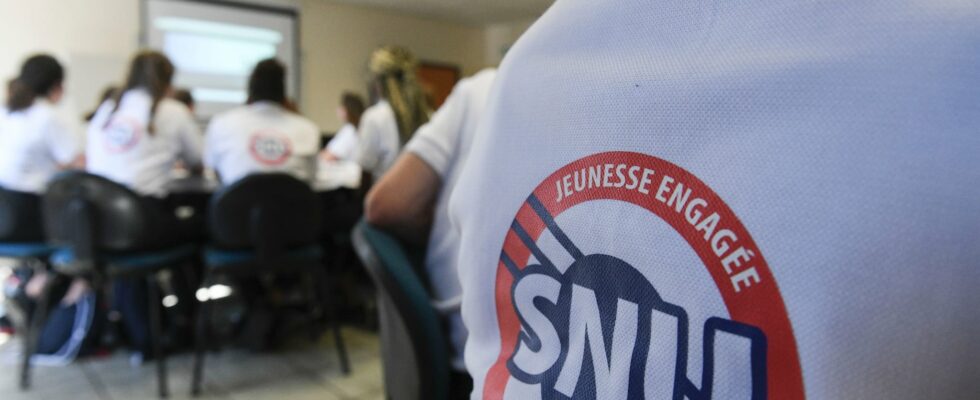At the top of the State, two visions clash. On the one hand the government, which reaffirmed this Thursday, October 31, that it “does not wish to eliminate the Universal National Service (SNU)”. On the other hand, the Assembly and the Senate, who attack the experimental system wanted by Emmanuel Macron, whose relative effectiveness they judge in relation to the estimated price. In the Assembly, it was the left that took the scalp of the SNU, with harsh words. “It is time to abandon” this “presidential gadget” which “does not work” and “is expensive”, judged the environmentalist deputy Jean-Claude Raux. Comments approved by the socialist Pierrick Courbon, for whom this “budgetary heresy” has “missed its target”.
Present in large numbers, the deputies of the New Popular Front had an amendment adopted on Wednesday evening in the Finance committees reallocating to the amateur sports sector all of the 128 million euros earmarked for the SNU in 2025. A symbolic victory due to the very weak presence of Macronist and right-wing elected officials, as noted by the LFI president of the commission, Éric Coquerel. “If it passes so easily (and) not by one or two votes, it’s because there is a part of the commission that is not there.”
The Senate hit the nail on the head a few hours later. Meeting behind closed doors, its Finance Committee voted for a reduction of 100 million euros in SNU credits. A decision taken unanimously minus two abstentions, socialist senator Éric Jeansannetas, youth credits rapporteur, told AFP. This amendment will be presented again in public session during the examination of the “expenditure” section of the budget by the Senate, at the beginning of December.
Objectives “that stand still”
“After five years of experimentation, it does not appear that the SNU provides sufficient added value […] to justify the continuation of its deployment”, indicated Éric Jeansannetas in his report presented on Wednesday and consulted by AFP. “For the first time since the start of the SNU experiment, the objectives are standing still”, said the elected official from Creuse, wondering “if the objective of (its) generalization to an entire age group is still relevant”.
Maud Bregeon, the government spokesperson, responded this Thursday that “the financial situation as it is today does not allow generalization”, while specifying that “between suppression and generalization, there is a path because it is an experience which seems to us to be very positive for many young people”. Words which echo those of the Minister of Sports and Youth, Gil Avérous, who admitted, Monday October 28 on Sud Radio, that he “did not have the means for a generalization of the SNU” in his budget. “In 2025, it will not be, in 2026 I can’t imagine that it could be,” he admitted. “There are no plans to remove it,” he stressed, however, calling for “re-questioning” a “broken” device.
Social diversity still absent
In September, the Court of Auditors relaunched the debate on the usefulness of the SNU by revealing estimated costs of between 3.5 and 5 billion euros per year. And evoking numerous failures observed: poor supervision, unclear missions, lack of social diversity… “The original environments of the young participants have been characterized, since 2019, by an over-representation of young people whose parents serve or have served in the uniformed corps and more advantaged socio-professional categories”, writes the Court.
Campaign promise of the Head of State, the SNU, launched in 2019, was to be generalized at the start of the 2026 school year, according to the promises of Gabriel Attal, ex-tenant of Matignon. This national service includes a “mission of general interest” and a “cohesion stay” including sporting, cultural and intellectual activities, with days that begin with the “raising of the colors” (flag and national anthem) and wearing of the ‘uniform.
